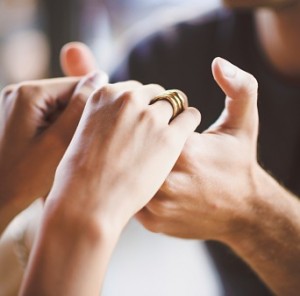The Stages of a Relationship (and the Purposes They Serve)

There may be couples who do not struggle, but after over 40 years as a marriage counselor, I recognize that is rarely the case. If only it were easy, we would not have so many divorces or so many conflicts driving couples to counseling. Most people would agree that marriages and long-term relationships are hard work. There are many who resign themselves to sticking it out, thinking they can learn to live with, accept, and endure whatever arises, even though they may be miserable. That is not what most of us want. If we understood that there are stages to relationships and things we can do to make them better, more might work harder to make them last.
Stage 1: Romantic Love
The theory of Imago relationship therapy explains that we tend to attract and be attracted to people who feel familiar. Romance happens unconsciously. At the time, we may not be consciously aware of how a person is like our childhood caretakers. We just experience the attraction and feel the chemistry. We discover all the things we have in common and minimize, if we even notice, the differences we have. We can’t take our hands off each other. We finish each other’s sentences. We merge with each other. It all seems amazing. We feel that this is the one person who will meet the unmet needs of childhood, but we are not consciously aware of feeling this. This stage is also referred to as the unconscious partnership.
Powerful neurochemicals fuel this early stage, the main one being oxytocin. These neurochemicals produce feelings of attachment and connection, a sense of well-being and belonging. Oxytocin is produced by mothers when nursing their babies. This phase can last anywhere from three months to two years before this “drug” begins to wear off.
The purpose of this stage is to form a bond that provides a secure foundation for the journey forward.
Stage 2: Power Struggle
At the beginning of a relationship, we generally do not see the things that will annoy us as the relationship progresses into the second stage. In the second stage, you start noticing each other’s differences. He likes to spend all Sunday afternoon in the fall watching football; you don’t. You have emotional needs; your partner has different wants and needs. You like to cuddle; your partner doesn’t want physical closeness.
You may find you feel frustrated in a similar way to your disappointments in childhood. Some of us are wounded and abused to the point of trauma, whereas others have minor hurts and disappointments—but none of us escapes childhood unscathed.
In this stage, you may try to deny these differences in order to preserve the bliss of the first stage, or you may begin squabbling, trying to get back to the oneness that you previously experienced. The relationship may feel like a lose-win or win-lose. It may be experienced as competitive as to who is going to get his or her way.
Many at this stage say it doesn’t feel like love. But if we care about a partner and the relationship, we become aware that love is more than a feeling—it is a behavior, a commitment to stay with your partner and do the work. As long as both are committed to the relationship and doing the work, a relationship can grow.
Most couples who go to marriage counseling have entered this stage. They feel stuck and don’t know what to do. There are also many who, at this stage, give up and separate or divorce.
The purpose of this stage is to learn the skills and tools to resolve differences without losing yourself.
Stage 3: Mature Love
Assuming that both parties are committed to growth and value the relationship, we can now explore what it is like to be in a long-term, conscious relationship. We are now aware that, together, we can heal our childhood wounds. We have learned the skills and tools of dialogue so that we can listen and hear each other. We understand that we have differences and how those differences make sense. We have compassion for our partner. We are less reactive and more intentional. We communicate our wants and needs more clearly. We allow ourselves to be influenced by our partner without losing ourselves because we care about his or her happiness. We recognize that to have a healthy, happy relationship, we both need to experience a sense of well-being. It becomes a win-win.
The purpose of this stage is to enjoy each other and feel the intimacy of connection with someone who gets you. We do this by using the skills and tools learned in the second stage when challenges arise.
© Copyright 2007 - 2025 GoodTherapy.org. All rights reserved.The preceding article was solely written by the author named above. Any views and opinions expressed are not necessarily shared by GoodTherapy.org.